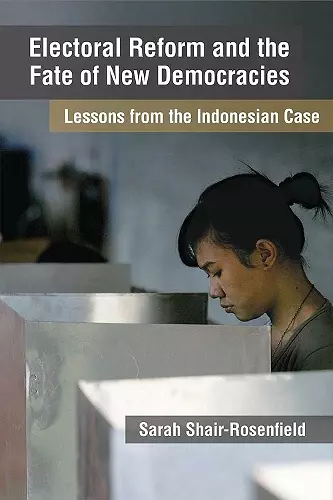Electoral Reform and the Fate of New Democracies
Lessons from the Indonesian Case
Format:Hardback
Publisher:The University of Michigan Press
Published:26th Jul '19
Currently unavailable, and unfortunately no date known when it will be back

When and why do democratic political actors change the electoral rules, particularly regarding who is included in a country’s political representation? The incidences of these major electoral reforms have been on the rise since 1980.
Electoral Reform and the Fate of New Democracies argues that elite inexperience may constrain self-interest and lead elites to undertake incremental approaches to reform, aiding the process of democratic consolidation. Using a multimethods approach, the book examines three consecutive periods of reform in Indonesia, the world’s largest Muslim majority country and third largest democracy, between 1999 and 2014. Each case study provides an in-depth process tracing of the negotiations leading to new reforms, including key actors in the legislature, domestic civil society, international experts, and government bureaucrats. A series of counterfactual analyses assess the impact the reforms had on actual election outcomes, versus the possible alternative outcomes of different reform options discussed during negotiations. With a comparative analysis of nine cases of iterated reform processes in other new democracies, the book confirms the lessons from the Indonesian case and highlights key lessons for scholars and electoral engineers.
“This is a highly valuable book on the relatively underexplored topic of electoral reform. It is thorough and based on original and painstaking research, including an impressive array of extensive interviews. The book will make a large contribution to the political science literature on elections and electoral rules. In addition, it provides invaluable detail on the electoral process in the world’s third largest democracy.”
—Joel Selway, Brigham Young University
“Shair-Rosenfield draws upon dauntingly complex data-collection and analysis to tease out the actual implications of counterfactual decisions regarding electoral rules. The end result is a creative effort to drill deeply into a case to clarify why theoretical predictions fail to hold up consistently.”
—Meredith Weiss, University of Albany
ISBN: 9780472131501
Dimensions: unknown
Weight: unknown
244 pages